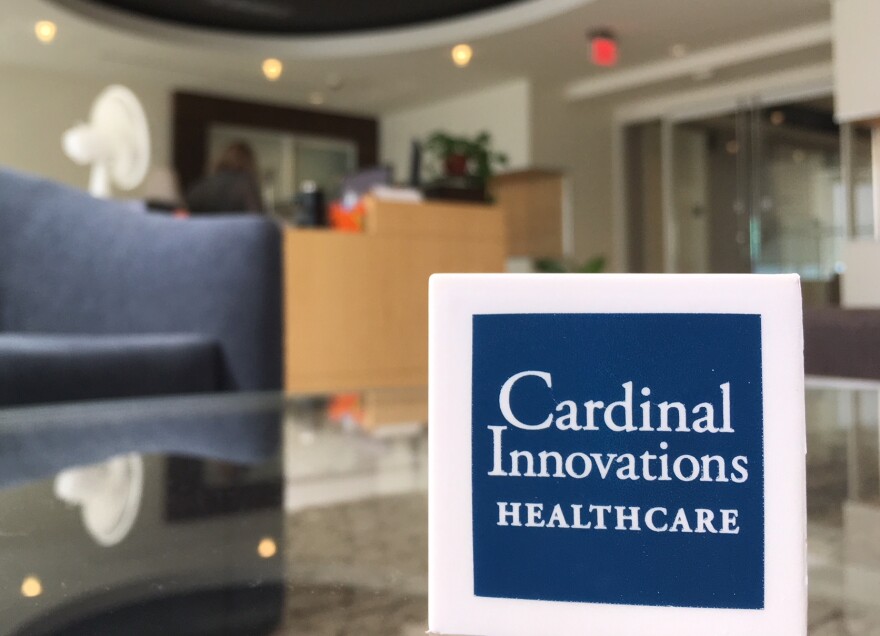North Carolina’s Department of Health and Human Services has had enough of the leadership at Charlotte-based Cardinal Innovations Healthcare.
There have been expensive parties and board retreats, excessive CEO pay and severance agreements deemed outrageous – all funded by taxpayers.
On Monday, DHHS took over the company.
Located in the NASCAR tower uptown, the lobby of Cardinal's headquarters is a pretty but surprisingly sterile place. There are no glossy photos of the CEO or any mention of the company's board of directors.
And that's probably a good thing because Monday afternoon those photos would have unceremoniously been stripped off the walls, and theoretically replaced with a banner reading “Under New Management.”
At 3:30 p.m., DHHS officials from Raleigh showed up for what Cardinal's spokeswoman called an “unexpected visit.”
It was not a courtesy call.
"They lost the public's trust,” says DHHS Secretary Mandy Cohen. “They had lost our trust. So we felt like DHHS had to temporarily take over the organization."
(DHHS Secretary Mandy Cohen's letter to lawmakers)
Cohen invoked a clause in state law which allows the state to step in and run a company like Cardinal in situations of serious financial mismanagement.
The state says this is the case. Cardinal is a behavioral health organization charged with administering $682 million in Medicaid money for mental health, developmental disabilities and addiction treatment in 20 counties, including Mecklenburg.
That means Cardinal must follow state rules for salaries. The maximum its CEO can make is $204,000 but CEO Richard Topping made just shy of $1.2 million in the last fiscal year.
Topping had been fired by his board after refusing to take a substantial pay cut. His last day was scheduled to be Friday. Cohen says Topping wasn’t at headquarters when DHHS officials arrived Monday.
He was contacted by phone, and told his time at Cardinal was over.
A similar message was sent to three other top Cardinal employees. They had recently resigned, but like their CEO was still at work. They were told to hand over their badges and company cell phones, leave the premises and not return.
These four employees have already been paid a combined $3.8 million in severance – all funded by tax dollars and approved by Cardinal's board of directors.
State officials warned Cardinal not to do this without prior approval. Board Chair Lucy Drake acknowledges that didn’t happen.
“Nope we did not, the board did that on their own.”
Drake says the board had been told they could still work something out with the state.
Instead, DHHS also fired Drake and the entire board of directors.
"My response is that everything we've been told was a lie," Drake says.
The duties of the board will now, temporarily, be fulfilled by DHHS employees. They will also run the day-to-day operations, manage every dollar the company spends and every service they help provide.
And DHHS says there will be no interruptions in payments to providers or staff or in the care of the Medicaid patients who rely on Cardinal to cover their care.
Benita Percell says she was ecstatic upon hearing the state took control of Cardinal. She has a sister whose care is paid for by Cardinal.
"It was the best news I've heard in a long time. I felt that the division (DHHS) was going to do something. I just hate that it took them so long."
State Sen. Tommy Tucker, R-Union, was also happy to hear the news.
“Their (Cardinal’s) arrogance has been on display for a long time and now the chickens have come home to roost.”
Tucker is a member of several key committees that deal with how Medicaid money is spent.
“Mr. Topping had mesmerized the board, the chairman and its membership and fed them a line of bull,” Tucker says. “So that's why we stepped in and did what we did.”
But there is also news those fired may not be willing to give up control of Cardinal.
After hearing the news, now former Board Chair Lucy Drake quickly sent out an email obtained by WFAE. It was addressed to other board members, Topping, and two other Cardinal employees. Drake wrote that she’s not sure if the state could take such action without legislation, or if the board can seek an injunction to stop the state from taking over.
Former Board member Steve Yuhasz was more blunt in an interview with WFAE. He strongly indicated that legal action is forthcoming.
"The suggestion that one individual, in a fit of bureaucratic pique, has the right to overrule the considered deliberations of local officials is offensive to the principles that govern our state," he said. "The action by Mandy Cohen and DHHS to oust the Cardinal Innovations Board of Directors will be resisted and will, I believe, be ultimately overturned."
Finally there's the man at the center of the Cardinal story, now-ousted CEO Richard Topping.
"I think there's a genuine dispute as to who runs Cardinal."
In an exclusive interview with WFAE, Topping explains that and defends his salary and severance.
“I think this argument that simply because Cardinal receives public money as a contractor that somehow the government gets to set salary and compensation is, it's not accurate.”




